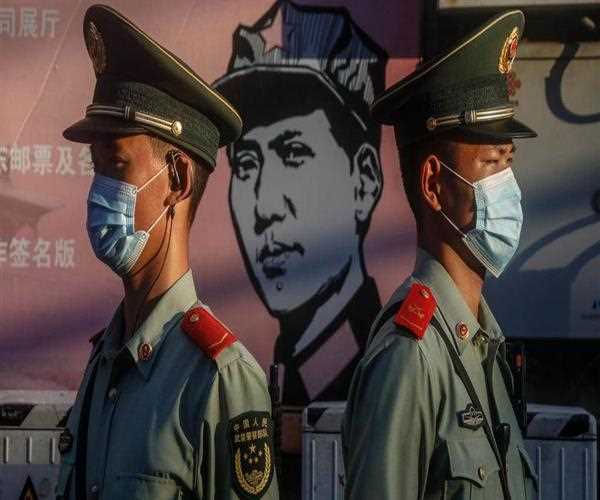Search here

27-May-2020
Decoding The One China Principle
Playing text to speech
You don't need to peruse the interior report introduced a month ago to Chinese administration regarding the matter to realize that basic assessment towards China is on the ascent around the world.
Censuring the nation for the spread of the coronavirus is just the most recent issue to be weaponised. Two more seasoned ones have especially returned to the fore lately.
The primary concerns Hong Kong. The declaration that Beijing's National People's Congress is going to pass national security enactment for the Special Autonomous Region, in light of the fact that the city's own Legislative Council (otherwise called the LegCo) can't be depended upon to do as such, has been welcomed with fights from specific quarters.
Under Hong Kong's smaller than normal constitution, the Basic Law, the LegCo is obliged to pass such enactment, yet has avoided it since a 2003 endeavor prompted a large portion of a million people rampaging in fight.
This clarification cuts no ice with pundits who guarantee the new laws would mean the finish of Hong Kong as it has up to this point been known, and that the "one nation, two frameworks" rule which should ensure the previous British settlement a high level of self-sufficiency for a long time after the 1997 handover has been sabotaged.
That isn't to the enjoying of the British outside secretary Dominic Raab, who gave an announcement alongside his Australian and Canadian partners, Marise Payne and Francois-Philippe Champagne, communicating their "profound worry" about the enactment, which they said would be in opposition to the lawfully restricting Sino-British Joint Declaration of 1984 that the two nations marked.
In any case, the absence of discretionary artfulness is conceived of a view apparently predominant in numerous political circles of the West today: that China is, as the American political specialist Francis Fukuyama puts it, "an unfriendly force".
Missing in the entirety of this is any endeavor to comprehend China's perspective, not to mention the point of view of an increasingly nationalistic China. For what reason should the Chinese be denied the privilege to a pride in their country – something that is frequently painted as a prudence somewhere else?
Which other nation would endure being undermined with exchange sanctions for authorizing laws inside its own outskirts – which is what it will do in Hong Kong? Also, which other nation would endure the pioneer of an area pronouncing freedom, which is the thing that Ms Tsai has successfully done, and afterward being saluted by a superpower.
With Hong Kong, the facts confirm that the Sino-British Joint Declaration is an arrangement enrolled at the UN. Yet, about three years back a Chinese remote service official portrayed it gruffly as "an authentic archive" that "no longer has any sensible significance", and the ethical case for Britain as the previous pilgrim capacity to have any state over the eventual fate of an island and its neighboring domains that it took from China with hazards over the nineteenth century is flimsy to non-existent.
Those were among the "inconsistent bargains" with outside forces that China had to sign during what it calls its "era of mortification".
Strikingly, a discourse on the state-run CGTN site as of late referenced these, expressing that "England, the US, Canada and Australia accept they are the watchmen and that they have a greater stake in what is a piece of China, than China itself. The rationale and mentalities concerning the Sino-British Joint Declaration despite everything mirror the inconsistent arrangements of old."
Were they not all that blinded by their analysis of Beijing's Communist initiative, even China's spoilers would need to surrender that there is something in this. They, and others, have to recognize China's feeling of itself, its history and its privileges to power over its own territories.
For what, all things considered, is their definitive objective? Their expectations were that, as China changed financially, a comparative opening-up would occur in the political circle. That is looking always impossible under President Xi. Be that as it may, in the event that it did, as Professor Fukuyama has conceded, "an increasingly liberal China could without much of a stretch be progressively nationalistic."
So in any case, railing or undermining or being pointlessly provocative to China over Hong Kong or Taiwan will have little use, past heightening as of now worryingly high pressures. Beijing won't offer a bit of leeway, and it would presumably be politically self-destructive for any pioneer to do as such. You don't need to concur with China's situations on these two issues. To overlook them, or imagine they don't have solid help at home, be that as it may, isn't statecraft however idiocy. Also, we have enough of that in worldwide legislative issues right now all things considered.

Comments
Solutions
Copyright 2010 - 2024 MindStick Software Pvt. Ltd. All Rights Reserved Privacy Policy | Terms & Conditions | Cookie Policy
